Bamboo floors are highly popular these days thanks to their similarities to hardwood flooring, lower costs and quite phenomenal aesthetic values the solution gains ground with its dense fiber and exotic look. Bamboo flooring is one of the most interesting flooring options out there, one that comes with advantages and disadvantages as any flooring type-and with the short guide that follows we tend to cover all you need to know about bamboo flooring, both pros and cons along with a graphic gallery of bamboo floors meant to feed your imagination.
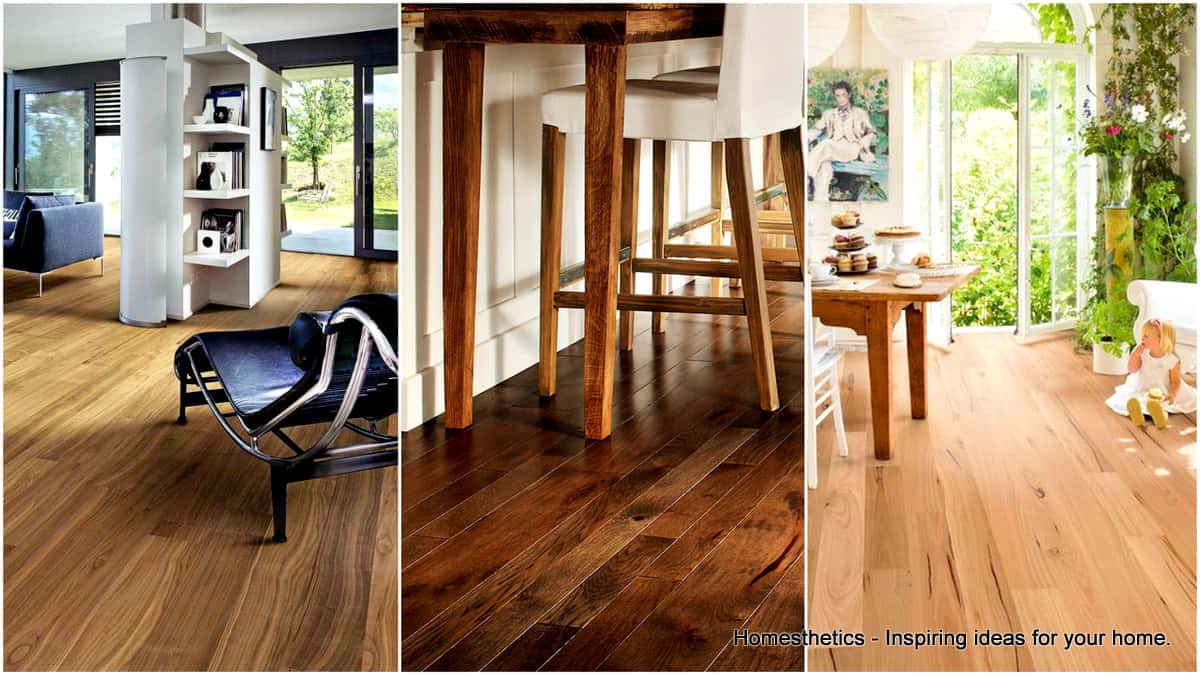
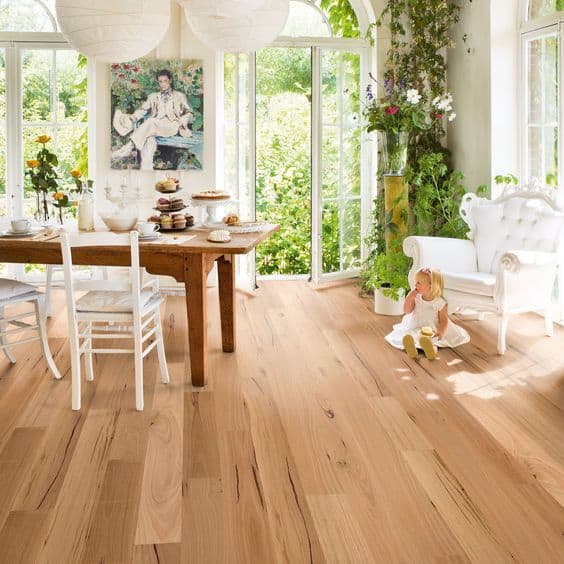
To the question " What is bamboo flooring ? " one could answer swiftly, bamboo flooring or bamboo floors are the covering material of floors with a natural wooden essence, in this case bamboo being a type of grass that grows extraordinarily fast. The bamboo floors are a great alternative to traditional hardwood floors so without further ado let`s have a look toe the feasts of strength of this solution and its weaknesses alike; we hope this information will come in handy in all your design endeavors and we would love to hear your feedback in the comment section below.
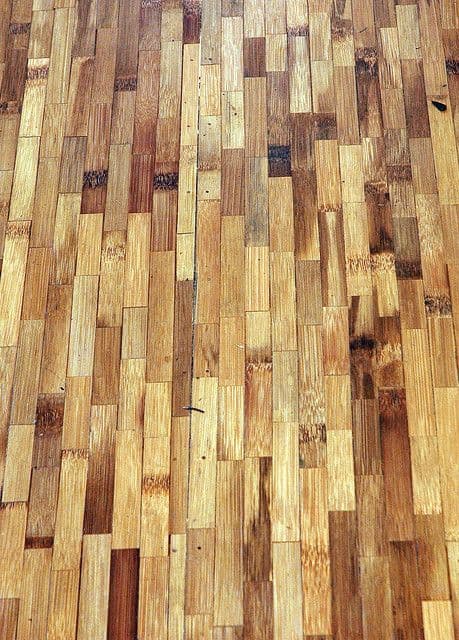
The Advantages Of Bamboo Flooring
Durable
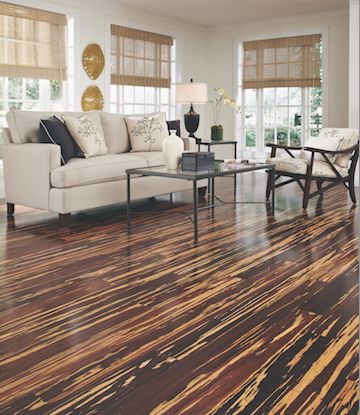
High quality bamboo floors are known to be as durable as their traditional hardwood floors counterparts yet the high quality term is relative to each country and industry. Note that un-carbonized bamboo can be as hard and strong as red oak where special solutions like strand-woven bamboo floors can be even better, heavier.
one stylish flooring
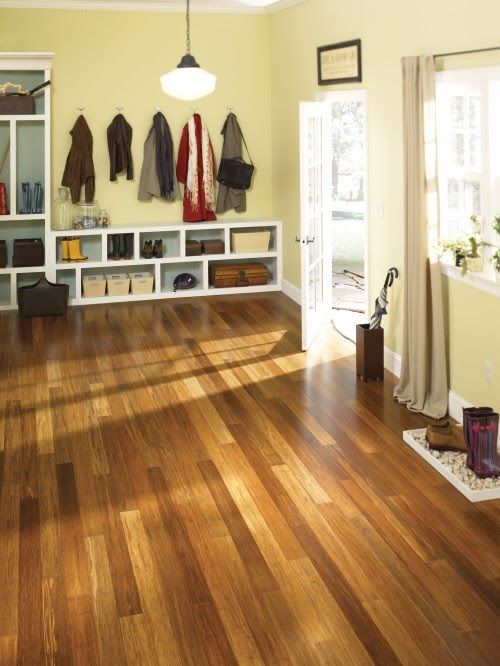
The modern look brought by the small delicate fiber of the bamboo is something that draws in many home-owners as the look on ensemble is modern, dense and sumptuously rich. The differences between bamboo flooring and hardwood are small yet the difference is there, subtle, hidden yet undeniable.
possibilities-variety
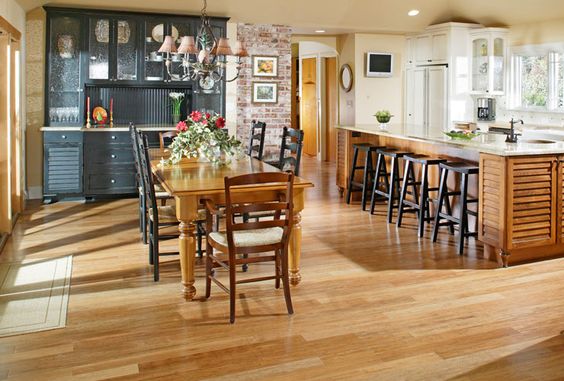
Bamboo flooring can be found in quite a large array of variety styles and colors yet one should note that each color represents something different in terms or processing; darker colors for example result from heat treatments most often than not, this, softening the bamboo fiber and slightly affecting its longevity.
green flooring option
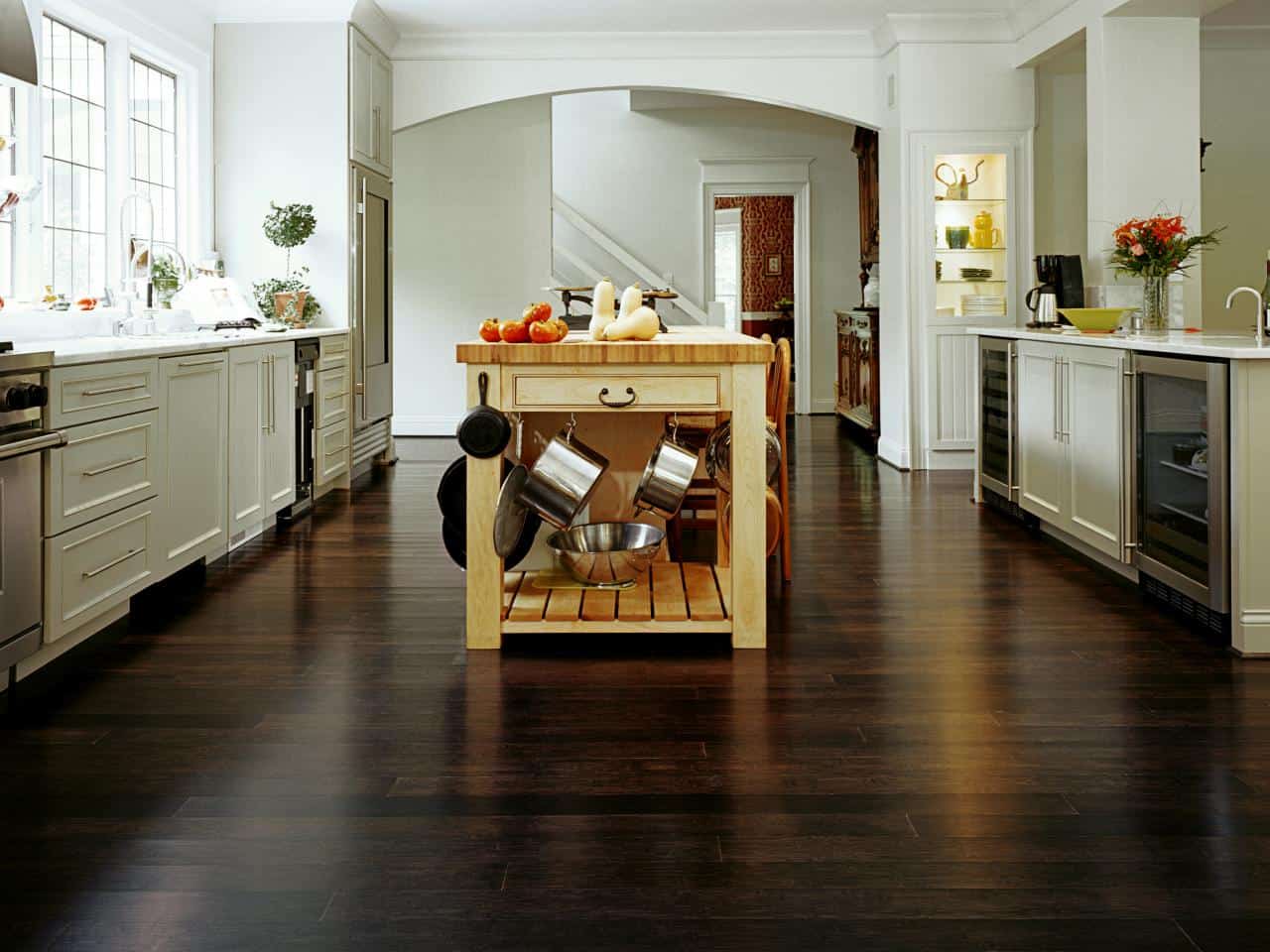
As bamboo is in theory a grass, a fast growing glass that matures and hardens in five to seven years, the bamboo is seen by many as a far more sustainable option when compared to traditional hardwood floors.
Natural material
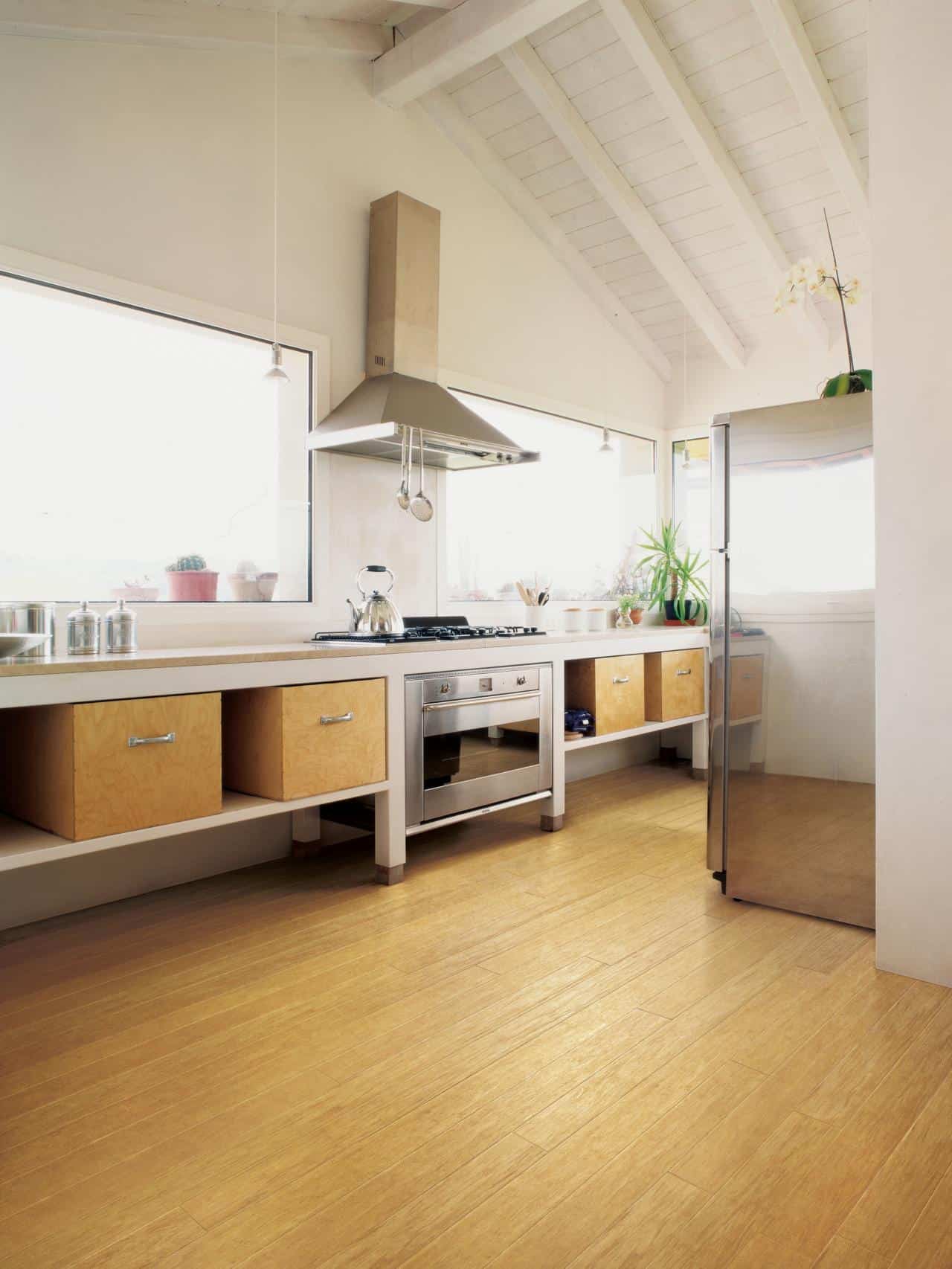
In theory it would be ideal to construct our homes with natural materials only and even though this option is not easily achievable due to the high costs of natural materials, bamboo flooring is a solid choice adopted by many sustainable-ecologically conscious people. The subtle elegant difference between bamboo floors and hardwood floors yet again highlights a sense of uniqueness and individuality with which many are comfortable, sense that is actually pursued more often than one would think.
easy maintenance
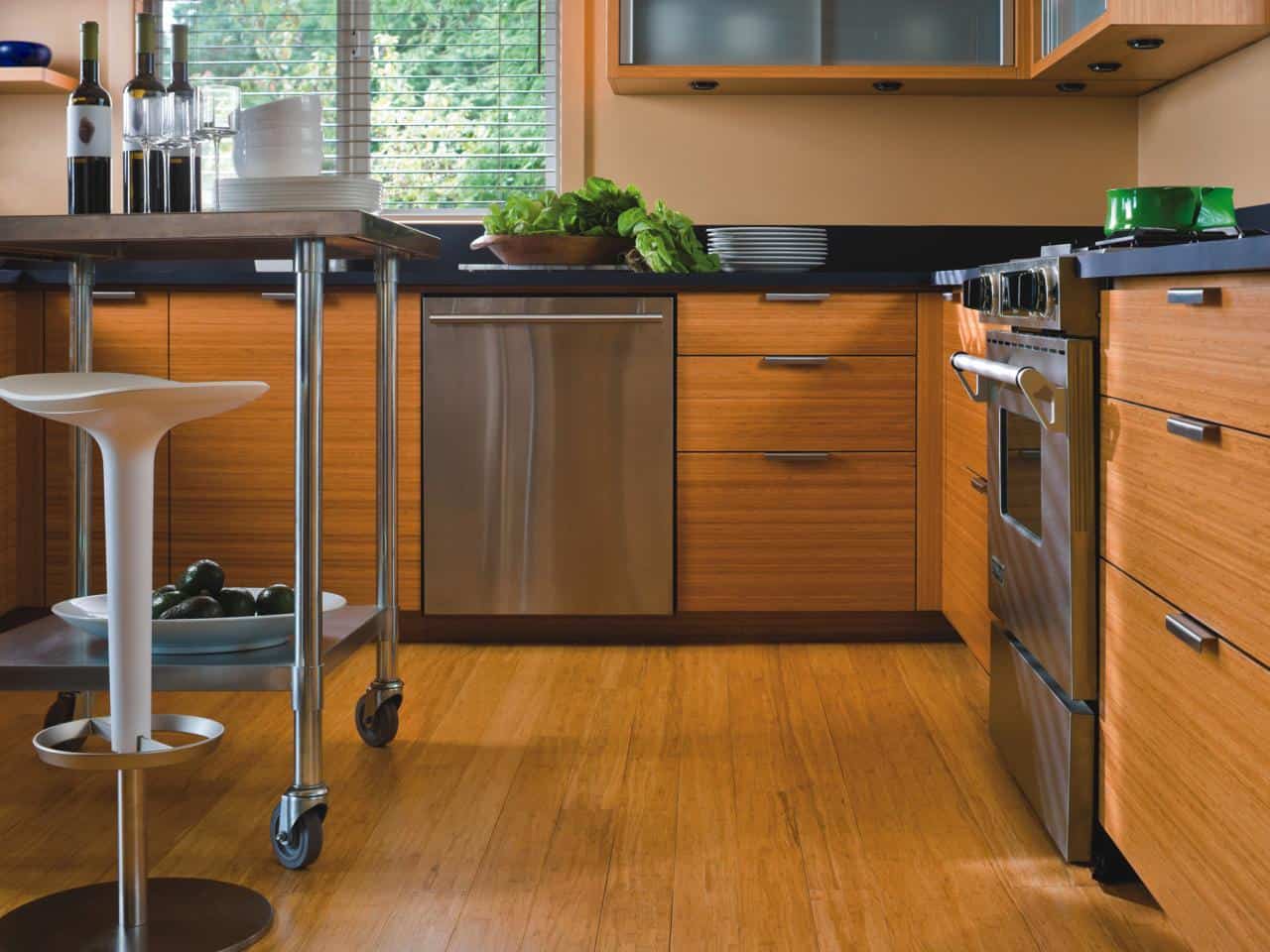
A great thing about bamboo floors is that they require no special treatments, they`re easy on maintenance and they can be cleaned with a mop and mild soap with ease making it a great feat of strength for most homeowners.
bamboo floors can be refinished
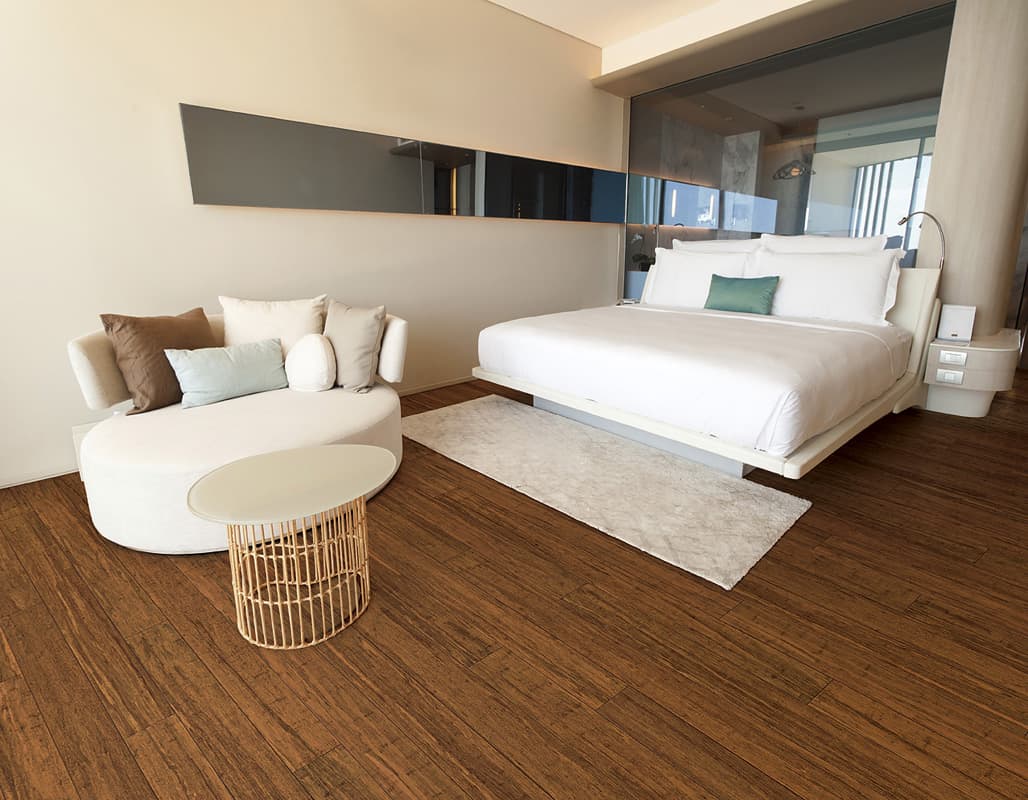
Bamboo floors too can be dented, discolored and scratched over times so it is a great relief for a home owner to know that the surface can be refinished if need be. By default the bamboo floor requires more layers of finishing than its hardwood counterparts making the entire surface look spectacular; sanding and refinishing these layers down to the surface and than reapplying finishing coats will refresh the design.
Moderate water resistance
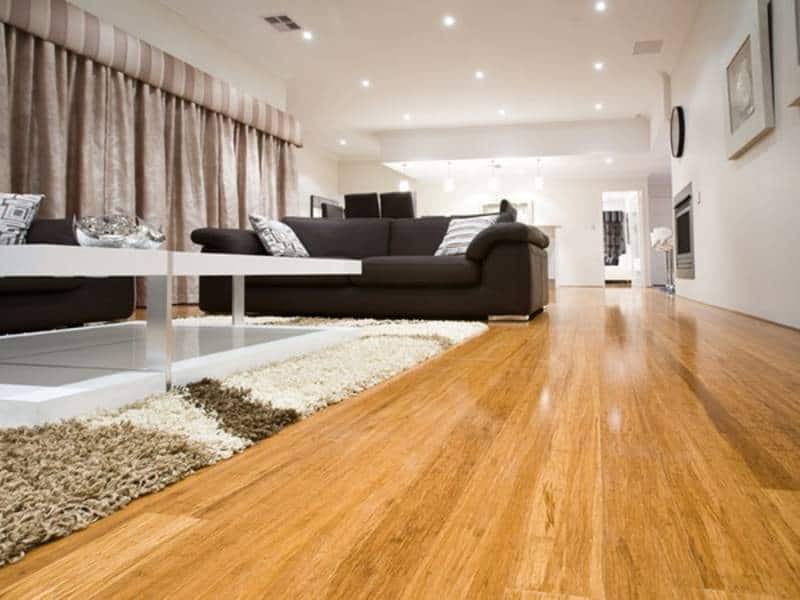
In a comparison with the traditional hardwood floors it`s a great thing to note that bamboo comes slightly ahead when it comes to water stains, warping and overall water damage. Bamboo too suffers from such accidents yet in the bigger picture if performs better.
lower costs
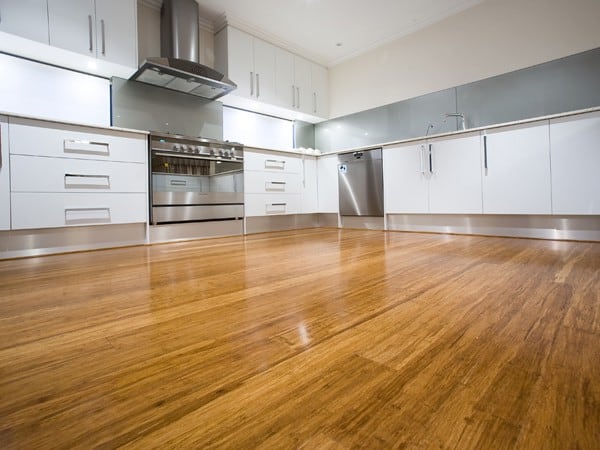
It is exotic, it has a unique vibe and yet the bamboo flooring is less expensive than hardwood flooring. In most areas the price difference is noticeable as the bamboo floors range from 5 to 8 dollars per square foot.
Bamboo Floors Disadvantages
Disclaimer - In no way are the following pictures part of the disadvantages section; they`re here to emphasize the capacities of bamboo floors not undermine it in any way.
likely to suffer from scratches
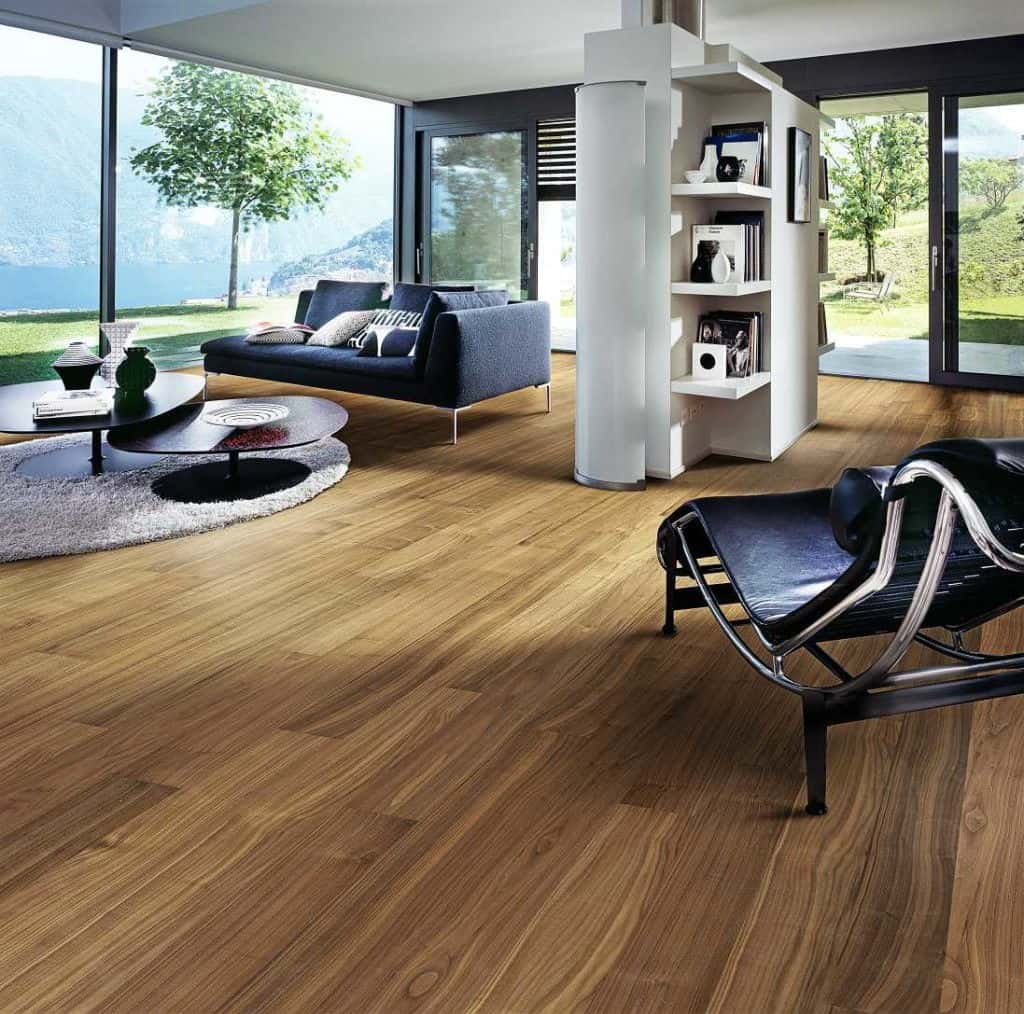
One should note that lower quality bamboo options do suffer relatively easily from scratches yet even high quality flooring can be distressed, scratched if used intensively. Pets, high heeled shoes and even furniture can scratch the surface in time as well as tiny particles of sand that your shoes might bring in on an everyday bases.
potential water damage
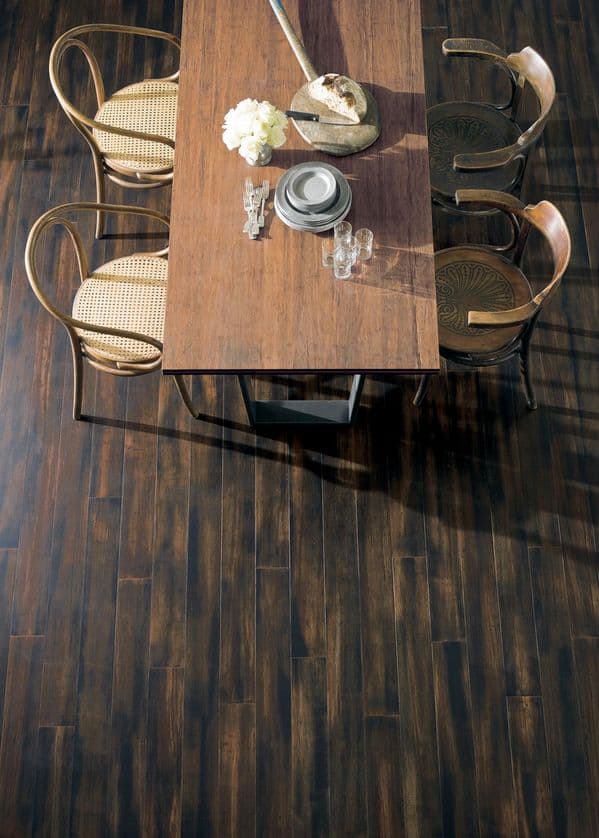
The natural options are vulnerable to water damage and even though the bamboo floors are a little more water resistant than their hardwood floors brothers the naturalness of the organic materials can suffer from prolonged moisture, reacting with warping, discoloration and in extreme cases even mold growth.
humidity sensitive
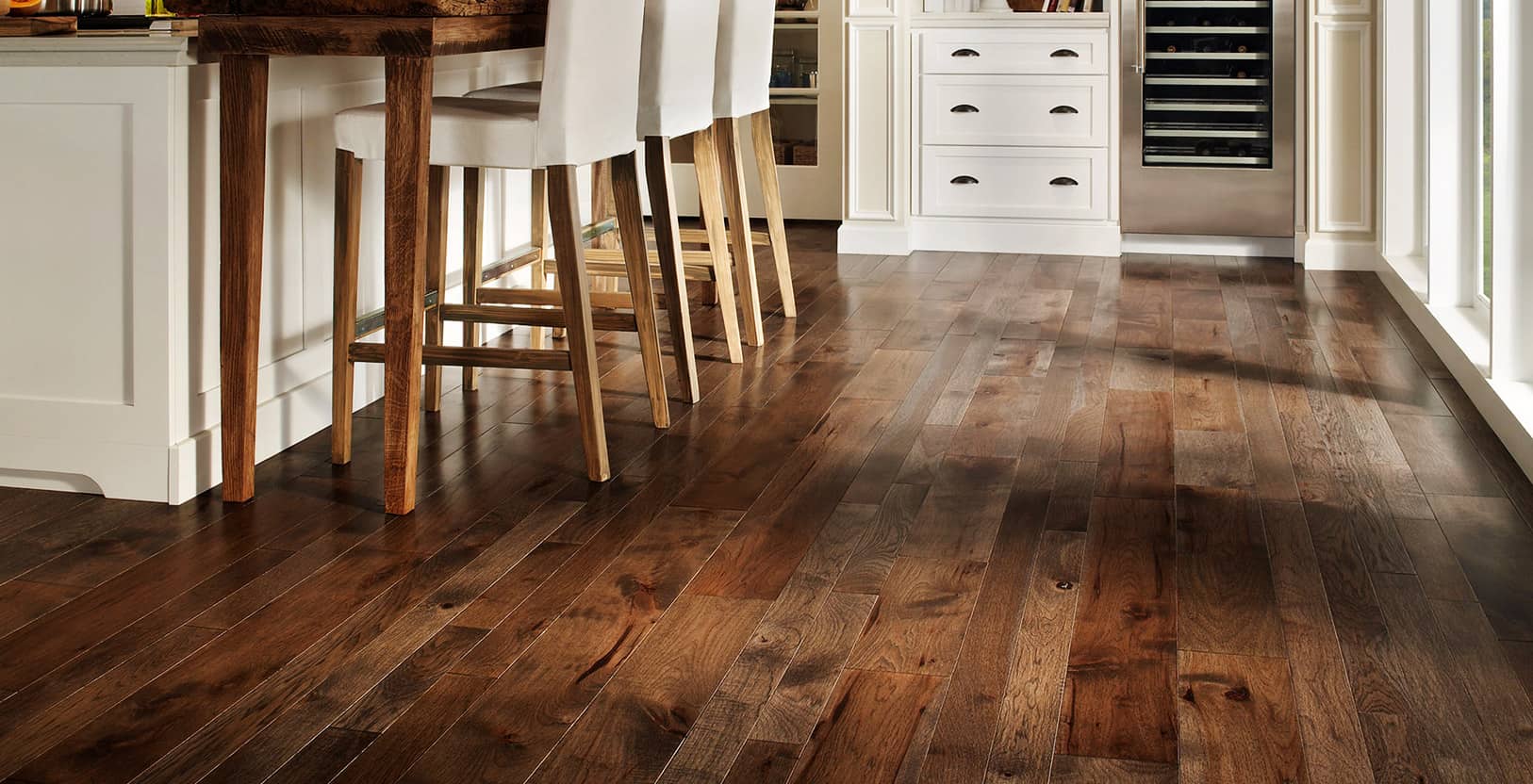
As the bamboo planks are less rigid and heavy the surface can suffer in very dry or wet environments. In humid areas the planks can expand and plump up fast where in dry environments they can shrink causing cracking in both cases. This happens due to lightweight structure of the wood itself; the bamboo is actually a grass basically and even if hardwood floors, in theory, are to suffer the same consequence in extreme cases, the wooden essence of a tree is far superior, perfected in years and years that the bamboo grass had not had.
softness potential
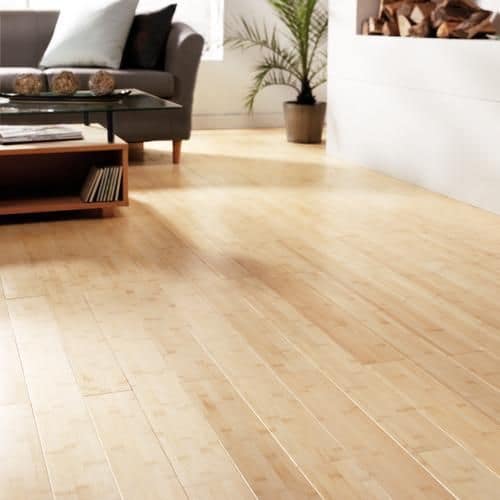
One should know very well what he purchases. Bamboo floors look exceptionally in their first year regardless of the harvest year yet in time, general softness and a very weak structure would define an early harvested bamboo plant, in extreme cases these being harvested when three months old, not being allowed to mature as it should, five to seven years. Keep in mind that stran-woven bamboo and un-carbonized options are always more durable where darker bamboo represents a weakened structure due to the heat treatments that cause it to soften.
Design restrictive
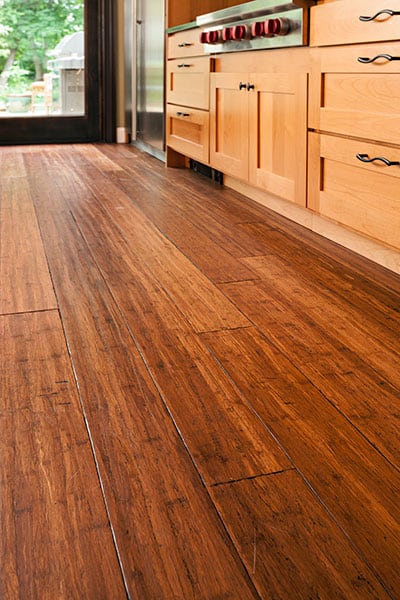
The modern look of bamboo cannot be overlooked yet it`s particularities are a feat of strength and a disadvantage at the same time as the powerful essence, strong looking fiber cannot be undermined therefore restricting the interior design lines a great deal.
toxic emissions may arise
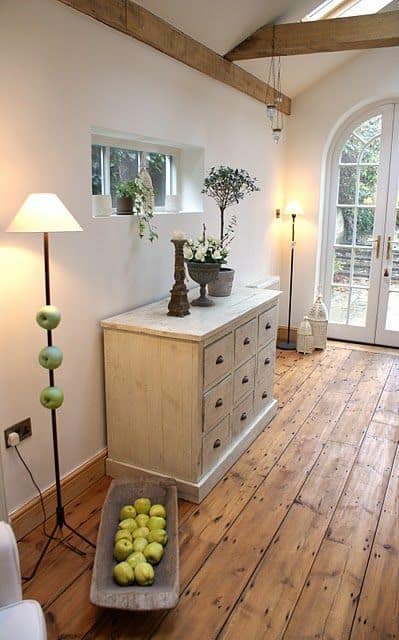
Everywhere in life, there is a shortcut; a shortcut that no one should take yet one that is well ridden by so many. It is known that certain bamboo floors, mainly the ones mass produced in China, might contain dangerous amounts of toxic chemicals like formaldehyde-based glues and finishes. In the plank making process, the bamboo is shredded or sliced only to be afterwards adhered together in the plank form that constitute the flooring; in this process the wrong adhesives can be used, these realizing VOCs in air in time making the flooring a safety hazard for the environment and more importantly for the inhabitant.
A proper certification from FSC - Forest Stewardship Council (FSC) can keep you clear of problems. Always make your due-diligence.
Uncertainty on harvesting practices
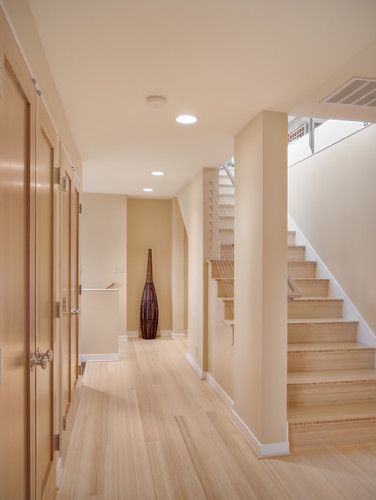
Bamboo is presented often as a highly-sustainable eco-friendly option and in theory, it is as it can be grown far easier then oak for example yet forestry practices can be irresponsible, and environmentally unfriendly like so many times it was proven to be. Not all bamboo comes from dedicated farms that actually grow it for harvesting, clear-cutting natural forests did happen and needless to say that the same happens for hardwood flooring yet one ought to do his due-diligence, to make sure he purchases the right product and does not indirectly encourage this highly toxic and harmful part of our world.
Make sure your bamboo floors are green; part of the responsible movement. Be aware of what surrounds you.
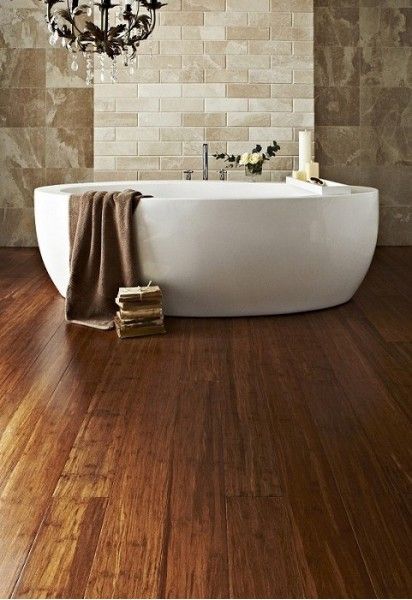
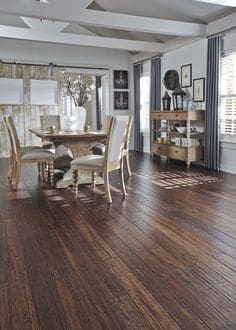
Bamboo flooring is a great great option with an extraordinary look, it deserves people's attention and it can change the world just a little bit if the whole process is cleansed and the option is clear green, and eco-friendly. What do you think? Would love to hear your opinion on the subject in the comment section below.
Related Articles
13 Best Vacuum for Stairs | Reviews and Buyers Guide
13 Best Non-Electric Vacuum Sweepers
6 Best Vacuum Cleaners for Mattress That Promote Healthy Sleeping
